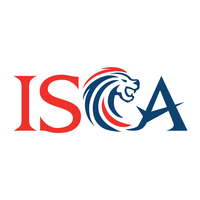Frequently-asked Questions
General
Infrastructure means the basic facilities, services and systems needed for the sustainable economic and social functioning of a community. Infrastructure usually possesses most or all of the following characteristics:
- Large size
- Capital intensive
- Long but finite life
- Few diversification opportunities, i.e., asset specificity
- High operating margins
- Significant operating cash flows post construction
Infrastructure covers toll roads, rail transport of all kinds, ports, airports, electricity generation plants and distribution networks, water desalination and distribution networks, social infrastructure projects such as education and healthcare projects, plus a range of more specialised sectors.
Project Finance is the financing of such infrastructure based upon a non-recourse or limited recourse financial structure where the debt and equity used to finance the project are paid back from the cash flows generated by the project.
Asia is developing rapidly. Demand for urban infrastructure and services is expected to grow strongly, with infrastructure investments in developing Asia projected to be US$20 trillion (S$28.5 trillion) from 2016 to 2030¹. Singapore is strategically positioned at the heart of the region, and has a strong ecosystem of infrastructure development companies, financing and risk management institutions, consultancies and law firms (among others). In 2018, the Singapore Government set up a new office, Infrastructure Asia, to support the development of the region by bringing together local and international partners across the infrastructure value chain. Read the ISCA Journal Article: "Positioning Singapore As Asia's Infrastructure Hub" to get more insights on the growth of Asia's infrastructure industry.
To keep pace with the growing industry, there is a continuing requirement for infrastructure and project finance professionals. One of the key strategies highlighted in “The Committee on the Future Economy” report is for professionals to collaborate and leverage their core competencies. One path for developing these resources is to build the capabilities of accounting professionals who already have a good grounding in many of the issues involved, including risk management, financial modelling and forecasts, and credit analysis.
¹“The Committee on the Future Economy” report, 2017
Employers within the infrastructure industry are involved along the project value chain, from project initiation to capital recycling. These include advisory firms, banks, private equity firms, engineering and construction companies, and the public sector.
Examples of job roles within the infrastructure value chain include:
- Engineers
- Fund managers & investment analysts
- Infrastructure financial advisors
- Infrastructure technical advisors
- Legal professionals
- Master planners
- Project finance bankers & credit analysts
- Tax & accounting professionals
- Treasury professionals
As ISCA is not a job matching agency, candidates will be responsible for searching suitable job roles within the infrastructure and project finance industry. However, ISCA will inform graduates of the ISCA Infrastructure & Project Finance Qualification on available job roles if the opportunity arises. More details on ISCA’s career support services available can be found by clicking here.
The ISCA Infrastructure & Project Finance Qualification is currently the only qualification in Asia that leads to the conferment of a credential by a professional body, which accepts entry level professionals who wish to specialise in infrastructure and project finance, thus reducing the barrier to entry for those who wish to enter the industry through structured workshops, supplementing on-the-job training. In comparison to other existing courses, the contents coverage of the qualification is comprehensive and covers key topics tailored to the industry’s needs, with a strong focus on ASEAN needs and case studies.
Read the ISCA Journal Article: "Welcoming More Trained Professionals into Asia's Burgeoning Infrastructure Development Space" to see what our pioneer batch of graduates have to say about the qualification.
Qualification Information
The ISCA IPFQ is a part-time programme comprising 3 modules, with 6 days practical workshops delivered by EY Singapore. Please see the qualification structure below:
ISCA Infrastructure & Project Finance Qualification (ISCA IPFQ) | |||
| Module 1 Project Lifecycle | Module 2 Project Risks and Financing | Module 3 Contracts and Modelling |
Topics Covered | Topic 1: Project Development
Topic 2: Procurement Processes | Topic 3: Risks Analysis and Mitigation
Topic 4: Project Financing | Topic 5: PPP Contracts
Topic 6: Project Value and Modelling |
Learning Outcomes | Candidates are expected to understand the factors that are required to be considered as part of project development as well as understand the different stages involved in procurement processes. | Candidates are expected to understand risk analysis and its application as part of project development and implementation, as well as understand the nature and characteristics of project finance, the various sources and key financing terms. | Candidates are expected to present the basic structure of a PPP contract and the key commercial principles involved in designing PPP contracts. They will also be introduced to the basic concept of Value for Money (VfM) and provided with hands on-experience of the financial modelling of PPP projects. |
Entry requirements: Recognised Bachelor’s degree or equivalent, and at least 2 years of professional work experience (relevant experience in infrastructure or project finance is not required). | |||
Module 1 Project Lifecycle | Module 2 Project Risks and Financing | Module 3 Contracts and Modelling |
Topic 1: Project Development
Topic 2: Procurement Processes
| Topic 3: Risks Analysis and Mitigation
Topic 4: Project Financing
| Topic 5: PPP Contracts
Topic 6: Project Value and Modelling
|
For the detailed syllabus of each module, please click here and refer to the Scope of Content.
Yes, you can include the time spent on taking the ISCA IPFQ as part of your CPE hours. The duration spent in workshops and examinations for all modules can be considered as verifiable hours. Please click here for more information on verifiable and non-verifiable CPE hours.
For FCA (Singapore) or CA (Singapore) who is a public accountant, please note that the category of the CPE hours clocked under the qualification modules will be classified under “Others”.
ISCA IPFQ is supported by Infrastructure Asia. Upon the completion of all modules and accumulating at least three (3) years of recent and relevant work experience, ISCA IPFQ graduates can be conferred the ISCA Infrastructure & Project Finance Professional (ISCA IPFP) credential, subject to meeting the prevailing membership admission requirements.
Infrastructure Asia¹ is an office set up by Enterprise Singapore (ESG) and the Monetary Authority of Singapore (MAS) and was officially launched by Finance Minister Heng Swee Keat in 2018. Infrastructure Asia is a one-stop platform to connect infrastructure demand and supply, link up infrastructure stakeholders, improve project visibility, facilitate infrastructure financing, harness Singapore and international expertise to prepare, develop and implement infrastructure projects, exchange information and share best practices, and building capability.
¹ https://www.enterprisesg.gov.sg/industries/hub/infrastructure-hub/infrastructure-asia
Entry Requirements
Upon completion of all modules, ISCA IPFQ graduates can be conferred the ISCA IPFP credential, subject to meeting the prevailing membership admission and experience requirements.
Applicants are expected to have a fundamental level of understanding that could be achieved via education or work experience in order to comprehend the curriculum during the course of study and have a reasonable chance of successfully completing the qualification.
Individuals who do not meet the entry requirements may still submit their applications for a formal assessment on a case-by-case basis and may be offered to study the qualification on a modular basis as independent candidates for professional development but will not be eligible for application and conferment of the credential upon completion of the qualification.
Please note that the application fee is non-refundable and non-transferable:
a) regardless of the application outcome; or
b) should the application to be withdrawn as requested by the applicants after submission; or
c) if you do not accept the offer to take the qualification on a modular basis as an independent candidate.
The ISCA IPFP credential is conferred to individuals who are equipped with the required professional competencies achieved via the completion of ISCA IPFQ and have at least three years of recent and relevant work experience prior to the application for the credential.
Both pre-qualification and post-qualification work experience that is relevant to infrastructure and project finance will be considered during the review of credential applications.
The entry requirements set ensure that individuals who embark on the ISCA IPFQ have a reasonable chance of successfully completing the qualification and are able to fulfil the role of an ISCA IPFP which require them to perform their work competently.
Workshops and Examination
At the end of each module, there will be a closed-book exam using an appointed third-party vendor’s secured exam software. Candidates are required to bring their own personal laptop installed with the exam software in order to sit for the computer-based exams. The examination questions consist of multiple choice questions (MCQs) and structured questions.
Name of Module | Duration of Examination | Number and Type of Assessment Questions |
Module 1 – Project Lifecycle | 2 hours | MCQs and structured questions |
Module 2 – Project Risks and Financing | 2 hours | MCQs and structured questions |
Module 3 – Contracts and Modelling | 1 hour | MCQs and structured questions |
The workshops will be held between March to April and September to October yearly, with the examinations in May and November respectively. Each module will consist of 2 weekday workshops.
For the most up-to-date workshop and examination schedules, please visit this page.
As the processing and approval of applications takes approximately 21 working days, applicants are encouraged to submit their applications as early as possible to be in time to enrol for the upcoming workshop and examination. For the most up-to-date registration period and timeline, you may refer here.
We strongly encourage individuals to select the workshop and examination session that best suits their personal and work commitments. As such, deferment of workshop and/or examination is not allowed.
Fees and Funding Support
The estimated fees for completion of the qualification are as follows:
Fees | Amount Incl. GST (S$) |
1. One-off Application Fee | 107 |
2. Annual Candidate Fee (payable from second year onwards after admission – i.e. 1 January of the calendar year) | 160.50 |
3. Module Fee | 2,354 per module |
Total Qualification Fees | 7,329.50 |
All fees paid are non-refundable and non-transferable. ISCA reserves the right to change the pricing without prior notice. Please visit our website for the updated fees.
Individuals are only required to pay for the modules they have registered for the examination session. They will receive an email notification on the commencement of examination registration for the upcoming examination session.
Candidates are to register via an online examination registration form and pay an examination registration fee via credit card within the stipulated window period. Upon successful receipt of examination registration fee, candidates will receive an invoice/receipt via email.
1. SkillsFuture Study Awards
You may wish to apply for the SkillsFuture Study Award during your course of study but before the completion of the ISCA IPFQ. The SkillsFuture Study Awards equip Singaporeans with the skills needed to benefit from quality jobs created by our economy. The Awards are for early to mid-career Singaporeans who are committed to developing and deepening their skills in key sectors and have relevant working experience in such sectors. Evaluation of each SkillsFuture Study Award application is done by the programme manager, on a case-by-case basis. Successful applicants will receive a monetary award of S$5,000, which can be used to defray out-of-pocket expenses associated with the course.
Please visit the following SkillsFuture Study Awards website of the relevant sectors for more details:
Website Link | Who is it for? | Programme Manager | Application Period |
Accounting professionals | Singapore Accountancy Commission | Please refer to the website for the most up-to-date application period. | |
Legal professionals | Ministry of Law | There is no closing date for application. Applications should be submitted after enrolment but prior to the completion of the course. | |
Finance professionals | The Institute of Banking and Finance | Please refer to the website for the most up-to-date application period. | |
Professionals working in the air transport industry | Civil Aviation Authority of Singapore (CAAS) | Please refer to the website for the most up-to-date application period. |
2. Course Fees Relief
Course Fees Relief is given to encourage individuals to continuously upgrade their skills and enhance employability. It is targeted at those who are currently employed or who have been employed previously. For course fees relief amount and the qualifying criteria, please refer here for prevailing information. For more information, please check directly with the Inland Revenue Authority of Singapore (IRAS).
3. NTUC Union Training Assistance Programme (UTAP)
Funding period: until 31 March 2022
Under UTAP, NTUC members enjoy 50% unfunded course fee* support, capped at $250 each year, for courses supported by UTAP. For more information on the UTAP, please click here.
Who can apply
All NTUC members can apply for UTAP. However, the following criteria must be met to be eligible for UTAP:
- Paid-up union membership before course commencement, throughout whole course duration and at the point of claim
- Course by training provider must be supported under UTAP, and training must commence within the supported period
- Course must not be funded through company sponsorship or other types of funding
- *Unfunded course fee must be S$20 and above
- Member must achieve a minimum of 75% attendance for each application and sat for all prescribed examination(s), if any
- UTAP application must be submitted within 6 months after course completion
*Unfunded course fee refers to the balance course fee payable after applicable government subsidy. This excludes GST, registration fees, misc. fees etc.
Please click here for the UTAP Application Guide and FAQs. To submit for UTAP claims, please visit http://skillsupgrade.ntuc.org.sg/.
Should you have queries on UTAP, you can email to UTAP@e2i.com.sg or call NTUC Membership Hotline at 6213 8008.
4. Financial Training Scheme (FTS)
[As of 23 Apr 2020: Please note that only the Project Risks and Financing module is recognised under this scheme]
This programme is recognised under the Financial Training Scheme (FTS) and is eligible for FTS claims subject to all eligibility criteria being met.
The FTS provides 50% funding for direct training costs subject to grant cap of S$2,000 per participant per programme.
Module 2: Project Risks and Financing | |
Fees | |
Module Fee (without GST) | $2,200 |
GST | $154 |
Enhanced course fee subsidy (80%), subject to prevailing $2,000 grant cap | ($1,760) |
Nett Fees Payable to ISCA (Inclusive of GST) | $594 |
To position the financial institutions and FinTech firms for stronger growth when the threat of COVID-19 recedes and economic activity normalises, the following enhanced course fee subsidies are introduced:
- For courses commencing between 1 January 2022 and 30 June 2022, FTS funding support will be raised to 80% of direct training costs subject to cap of S$2,000 per participant per programme. Singapore Citizens aged 40 years old and above will be eligible for 90% co-funding of direct training costs.
- Eligible companies (Singapore-based financial institutions regulated by MAS and SFA certified FinTech firms) who are supporting their employees for training can claim for Training Allowance Grant which is $10 per training and assessment hour. The Training Allowance Grant will apply to Singapore Citizens or Singapore Permanent Residents who successfully completed IBF recognised courses that commence training between 1 July 2021 to 30 June 2022.
Eligibility Criteria
- Eligible Participants include:
- All Singapore Citizens and Permanent Residents sponsored by financial institutions (FI) and eligible FinTech firms
- Licensed representatives such as insurance agents, financial advisers, and remisiers supported by FI principal
- General insurance (GI) agents registered with the General Insurance Association’s (GIA) Agent Registration Board
- Eligible companies include Singapore-based Financial Institutions (licensed or exempt from licensing by MAS) and FinTech firms certified by Singapore FinTech Association (SFA).
- Must have successfully completed FTS recognised programme.
Note: The individual will not be eligible for the course fee subsidy if he/she drops out halfway through the course or did not pass the assessment. ISCA will take reasonable steps to claw back the disbursed course fee subsidy from the self-sponsored individual or the sponsoring company and return the monies recovered to IBF within 3 months from the completion of the course for the cohort.
Please refer to www.ibf.org.sg for more information.
Professional Qualification (PQ) Portal
The following services are available through the PQ Portal:
- Apply for a new professional qualification
- Track application status
- View your candidate status and candidate validity period
- Enrol for modules and track your progress
- Download study materials
- Print certificates and transcripts
- View workshops and exams schedule
- Make payments and view invoices/receipts
For more information, you may refer to the PQ Portal User Guide - Accessing the PQ Portal
You will need to create an ISCA eServices account first before you access the PQ Portal:
- Go to the ISCA eServices Portal to create a new account. Follow the instructions sent to your email address and activate your account
- Once you are logged in to the eServices Portal, you will see the “Professional Qualification (PQ) Portal” link on the left navigation menu. Click the link
- Fill in the required information in the “Edit Profile” form before you navigate to the PQ Portal
To update personal particulars and employment information, please navigate back to the eServices Portal and update the information under “My Profile”. You may refer to the PQ Portal User Guide - Accessing the PQ Portal for more information on accessing the eServices Portal to update your personal particulars and employment histories.
Corporate Candidate refers to an Individual who is sponsored by his/her company to pursue a professional qualification.
Corporate User refers to the company’s representative who will initiate a new application and make payments for the Corporate Candidate’s application, module enrolments and Annual Candidature Fee.
Both the Corporate User and Corporate Candidate will need to create an ISCA eServices account to navigate the PQ Portal.
3 Steps to complete an application:
- Corporate User to initiate a new corporate application and add selected candidate(s) into the application
- Corporate Candidate to provide details of the application
- Corporate User to complete and make payment for the application
You can refer to the PQ Portal User Guide - Application for more details.
At the payment summary page, please select the applicable funding scheme in the drop-down list and enter the total eligible funding amount. Once you click “Apply”, the funding amount will be offset from the amount payable accordingly.
Before you submit for payment, please ensure that you have completed the applicable funding application form and upload it for our verification.
Payment mode for self-sponsored individual candidate: PayPal. PayPal allows you to make payment via credit/debit card without creating a PayPal account.
Payment mode for Corporate User to sponsor their candidates: PayPal, Cheque/GIRO or Vendor@Gov (for eligible government agencies only).

/infocomm/istock-1065240778-c.jpg?sfvrsn=50a9b558_2)
/audit-assurance/istock-1133945516-c.jpg?sfvrsn=d158128a_2)
/courses/istock-1222725146-c1.jpg?sfvrsn=339e8e96_2)
/leadership-personal-development/istock-1049824998-c.jpg?sfvrsn=3865afcc_12)

.jpg?sfvrsn=d4038e84_0)

/courses/istock-1140691163-c.jpg?sfvrsn=24ccc519_2)
/audit-assurance/istock-1169206203-c.jpg?sfvrsn=1d6f9b25_2)

/business-management-global-connection/istock-1167579720-c.jpg?sfvrsn=ff93f9a5_2)

/professionals/istock-845530100-c.jpg?sfvrsn=46efdedd_2)





/legal-secretarial/istock-866706340-c.jpg?sfvrsn=d7f57b8c_2)